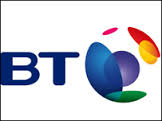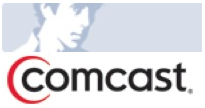Think of this as Volume 18, Number 12 of the newsletter I have written weekly since March, 1997. Enjoy.

The assumption of its designers was that the Internet would be a two-way network, that as many bits would flow in one direction as the other. Peering, the original financial agreement underlying today's Internet, is based on this assumption.
The Internet, in other words, was not designed to be TV. It was not designed to be a passive medium, as something you watch, or read, or listen to. We already had such media. The Internet was designed to be something you interacted with.
That's not how things are working out in our time. The Internet is becoming TV, is becoming something you watch, or read, or listen to. The bits are mostly flowing in one direction, from the core to the edge of the network. Most of the technical standards underlying consumer Internet traffic, like DSL and DOCSIS, are designed to let bits flow faster downstream than upstream, on the assumption that more bits would do that.

The core of the Internet can take advantage of Moore's Law. The edge does not.
This is true for non-Internet networks as well. Payment networks are ready to take EMV or chip cards. They were improved by programmers from central points. Issuing banks, however, have to send out over 1 billion chip cards, at a price 10 times greater than mag-stripe cards, to cut the $5 billion in fraud on that $4.4 trillion market by, maybe, half. And merchants have to install EMV terminals, and cash registers. They also have to train people in new check-out procedures. It's expensive.

As a result of all this, improvements in the Internet's core have outstripped those at its edge. Core services complain that there isn't enough speed at the edge, that consumers can't get everything they want to deliver, that U.S. broadband is falling behind that in other countries. They're right.
When the edge services try to fight back against this economic reality, they are accused of violating “net neutrality,” the principle that people should be able to access any legal service they care to, without discrimination. They are doing just that, because they can't make a single agreement with the core, only with specific interests inside that core.

A few generations ago, regulators fought this kind of vertical integration. The fall of the Hollywood studios is directly attributed to Washington's demand that theaters be divested by studios in the early 1950s. Without that integration, the studios withered. When they came back a generation later, as TV networks, and demanded the right to own their own programming, Washington gave in.

The fact is, neither side is being honest about the issue. Core services aren't admitting to their financial advantages, over the edge. Edge services aren't acknowledging the inherent conflict of interest in owning content.
Consumers are being whipsawed by rhetoric from both sides, and policy makers in Washington are suffering from the same thing.
But we don't have to be. It is time to acknowledge that there are cost differences between the edge and the core. It is time to build business models acknowledging this cost difference, and enabling improvements in edge performance the core needs in order to grow. But it's also time for edge services to stop lying about what they're doing. They are violating “net neutrality.” They are trying to control Internet consumer behavior through their control of vital infrastructure.
The edge deserves to be paid. But the Internet deserves to be free.










What may you recommend about your publish that you simply made some days ago…
What may you recommend about your publish that you simply made some days ago…
As what is good for the gander is good for the goose, why not let good old Ephraim Inoni benefit from this
very same largesse? His account published a few days ago should pay off his debt without much loss of sleep.
As what is good for the gander is good for the goose, why not let good old Ephraim Inoni benefit from this
very same largesse? His account published a few days ago should pay off his debt without much loss of sleep.
There Is Obviously a lot to know about this. I suppose you made Some Great points in the Feature also.
There Is Obviously a lot to know about this. I suppose you made Some Great points in the Feature also.
Thank you very much for the information provided! I was looking for this data for a long time, but I was not able to find the trusted source.
Thank you very much for the information provided! I was looking for this data for a long time, but I was not able to find the trusted source.
It’s really beautiful work.Thanks for this kind of stuff.I mean I am totally impressed.
Hope to see more updated work here. I have to say, it is very informative.
It’s really beautiful work.Thanks for this kind of stuff.I mean I am totally impressed.
Hope to see more updated work here. I have to say, it is very informative.
Thank you for providing eye opening article thank you for sharing its really informative article…
Thank you for providing eye opening article thank you for sharing its really informative article…
If we pay attention to God’s creation, it is forecasting great changes ….
and most of it will not be to our liking! But I guess what upsets me the most is the arrogance of man,
who thinks that he can improve on what God brought forth out of His supremacy and sovereignty.
That arrogance will beget judgment.
If we pay attention to God’s creation, it is forecasting great changes ….
and most of it will not be to our liking! But I guess what upsets me the most is the arrogance of man,
who thinks that he can improve on what God brought forth out of His supremacy and sovereignty.
That arrogance will beget judgment.
The overall look of your website is excellent, let alone the content!
The overall look of your website is excellent, let alone the content!